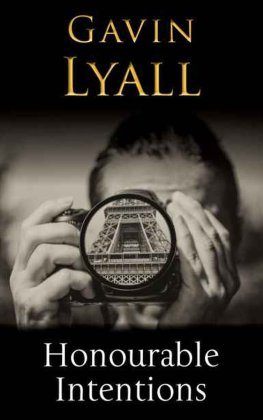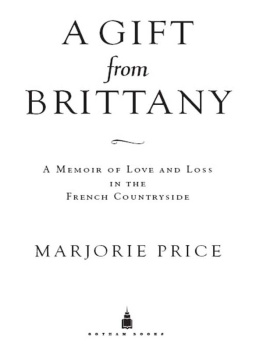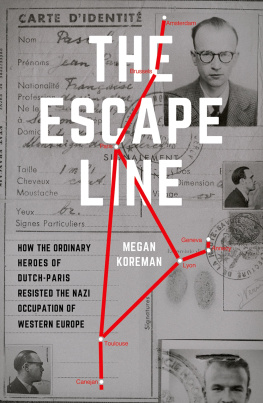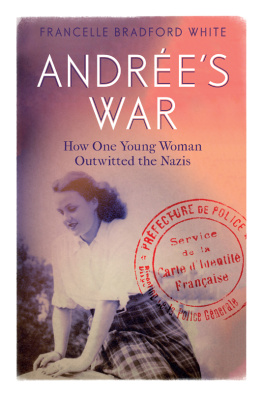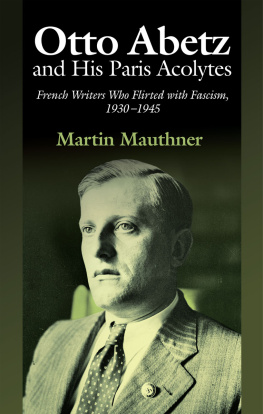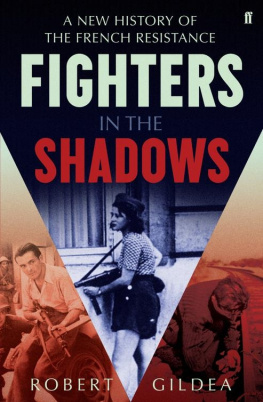
Gavin Lyall
Midnight Plus One
It was April in Paris, so the rain wasn't as cold as it had been a month before. But still too cold for me to walk through it just to see a fashion show. I wouldn't find a taxi until it had stopped raining, and when it stopped I wouldn't need one: I only had a few hundred yards to go. Impasse.
That left me sitting in the Deux Magotsgetting wet only on the inside and listening to the evening traffic making angry Grand Prix starts from the lights on the Boulevard St Germain outside.
The cafclaimed it was the Rendez-vous de l'lite intellectuelle, but it was the quiet time when most of thelitehad gone off to wave their arms and egos over dinner. The only other customer I could see without turning my head was a young gent in a green corduroy suit and mauve denim shirt, but he obviously wasn't reallyintellectuellebecause he was reading the continental edition of the Daily Mail. The front page was getting excited about the setting up of another enquiry into British security leaks. I stayed calm; all it meant was that another half-dozen retired civil servants and judges were going to be told secrets they wouldn't have known otherwise.
The loudspeaker on the wall said:'Monsieur Caneton, Monsieur Caneton. Tlphone, s'il vous plait.'
Ask me what my wartime code-name was and I'd need a moment to remember. Broadcast it over a cafloudspeaker in Paris and I know immediately who you mean. The back of my neck felt cold, as if somebody had touched it with a gun muzzle.
I finished taking a sip of Pastis, which I found I'd been in the middle of, and started thinking what to do. In the end, I did the only thing possible: went to answer it. Whoever-it-was must already know I was there. He couldn't have been ringing the Deux Magots twice a day since 1944 on an off-chance The telephones are downstairs, near thetoilettes', two wooden booths with small porthole windows. I could see somebody's back view in one; I picked up the other phone and said:'Allo?'
'C'est Monsieur Caneton?' said whoever-it-was.
'Non,' I said. 'Je ne connais pas Monsieur Caneton. Qui est l ?' If he wanted to play by the old rules, he'd get 'em. You never admitted to knowing anybody, let alone being them.
All he did was chuckle. Then he said, in English: 'I am an old friend. If you meet Monsieur Caneton, please you tell him that Henril'avocatwishes to talk with him.'
'And where would he find Henri the lawyer?'
'In the next telephone box.'
I dumped the phone, stepped out, and yanked open the next door. And there he was, wearing a malicious grin that stretched from side to side of the booth.
'You bastard,' I said. 'You sadistic bastard.' I wiped the back of my neck.
The grin flowed out of the booth towards me. Behind it was a shortish tubby man in a crisp white raincoat, curly grey hair, a deep fat face with bright grey eyes behind rimless glasses, and the sort of moustache that could have been just a moment's forgetfulness in shaving.
Henri Merlin, Paris lawyer. And one-time Resistance paymaster.
We shook hands, using all four of them. It was ten years since we'd met and I hadn't seen much of him since the end of the war. He'd aged he was well into his fifties but elegantly and, it seemed, prosperously.
'You have not forgotten everything, then,' he beamed. 'Even the accent is not too horrible.'
'The accent's bloody good.' Good enough to keep me alive in France for three years in the war and a sight better than his English. But on a second thought, I wondered if his English might not be deliberately stagey. American and British businessmen or lawyers might ease up a little once they had him spotted as that familiar type, the gay, flippant musical-comedy boulevardier. Top Paris lawyers are as gay and flippant at work as the men who cut diamonds for a living.
Then I remembered I had a living to make, too. 'Can't stop now, Henri. Can I see you later?'
He stretched a fat hand towards the stairs. 'We go together. We are enemies.' He grinned again.
'You'rein on this case?'
'Naturellement. You see how determinedle Matreis this time? he now has the best of all Paris lawyers. This time weprove your Mercedes Melloney is stealing the themodles' -he held out his raincoat like a skirt while he searched for the word 'the dress designs (you see? in England you do not even have a word for it) the designs ofle Matre. We prove it. You pay us one million francs. Then we have dinner and we talk about a job I have for you.'
'We'll take it to court,' I said. But he was already bouncing up the stairs.
He stopped halfway and looked down at me. 'You are not perhaps Caneton any more? Not withl'Intelligencenow?'
'Not Caneton. Just Lewis Cane.'
'Louis.' He gave it the French pronunciation. 'With all these years, I did not know your real name. We go to see the horrible fashions of Mercedes Melloney.' He accelerated upstairs.
As far as I know there had never been anyone called Mercedes Melloney, which doesn't surprise or sadden me. It was just Ron Hopkins' idea of the sort of name he needed to sell the sort of dresses he made. He had another, and better, idea of how to sell them, of course; that was why he needed the sort of advice I specialised in.
It sounds crazy, an English mass-production dress manufacturer giving fashion shows in Paris, but Ron didn't haul a plane-load of clothes and models across the Channel for anything but the health of his bank balance. According to him, the French had stuck to thehaute couture from the big fashion houses, or the tailor-made stuff from the little-woman-round-the-corner. Which left themselves wide open for somebody doing cheap up-to-date mass-production clothes. And since he'd been doing this for three years now, I suppose he was right. Always taking into account his little gimmick, of course.
The show was in the dining-room of a big hotel in Montparnasse, probably because Ron thought Paris was more Parisian on the left bank. It was a long, narrow room done up in white and gold and long scarlet drapes that did a fine job of recalling a pre-1914 era that it had never known. It also gave a good excuse for the hard little gilt chairs you had to sit on.
As Merlin and I came in Ron zoomed down at us, under the impression that we were French cabinet ministers or some such leaders of fashion, saw who I was, and said sharply: 'You're late, boy.'
'So's the opposition. ' I did the introductions. 'Henri Merlin, Monsieur Ron Hopkins. A vrai dire, c'est Mercedes Melloney.'
Merlin smiled politely.'Enchant.'Ron was wearing a dark-green dinner jacket with light-green silk lapels and a pink orchid which was his idea of how to look as pansy as he thought the Paris dress trade was. Behind it, he looked as English as roast beef and as homosexual as a tomcat.
He gave Merlin a fast up-and-down, then nodded at the catwalk down the middle of the room. 'There's a front seat for you over there, boy, and your pal next to you. Don't go selling me out, now.'
I leered at him, and we kicked our way past a row of legs to our places; the audience seemed to be mostly women, and mostly either those who had got old without getting fat or got fat without getting old. A couple of trumpeters in plumed brass helmets let out a toot to announce a new range of dresses and half a dozen models floated out from an arch of roses. Somewhere along the way Merlin had picked up a programme.'Numro37,' he read. 'It is called Printemps de la Vie. Springtime of life a most enchanting title. When he first designed it,le Matrenamed it onlyau Printemps.Your Hopkins shows a most accurate understanding of that somewhat decayed age of woman to which it is supposed to sell. When I decide that it is also exactly the same dress, it will cost him one million francs.'
Next page


